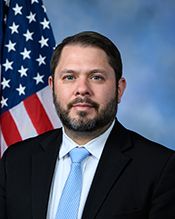0
0
0
Extreme Heat Emergency Act of 2023
12/15/2023, 3:59 PM
Summary of Bill HR 3965
Bill 118 HR 3965, also known as the Extreme Heat Emergency Act of 2023, aims to address the growing threat of extreme heat events in the United States. The bill recognizes that extreme heat is a serious public health risk that disproportionately affects vulnerable populations, including the elderly, low-income communities, and people of color.
The key provisions of the bill include:
1. Establishing a national heat response plan: The bill directs the Department of Health and Human Services to develop a comprehensive national heat response plan to coordinate federal, state, and local efforts to protect public health during extreme heat events. 2. Enhancing heat monitoring and forecasting: The bill provides funding for the expansion of heat monitoring and forecasting systems to improve early warning and response capabilities. 3. Improving heat resilience in communities: The bill authorizes grants to support the development of heat-resilient infrastructure, such as cool roofs, green spaces, and heat-smart building designs, in at-risk communities. 4. Protecting vulnerable populations: The bill includes provisions to ensure that vulnerable populations, such as low-income households and outdoor workers, have access to cooling centers, hydration stations, and other resources during extreme heat events. 5. Promoting research and education: The bill allocates funding for research on the health impacts of extreme heat and public education campaigns to raise awareness about heat-related risks and protective measures. Overall, the Extreme Heat Emergency Act of 2023 seeks to improve the nation's preparedness and response to extreme heat events, with a focus on protecting the health and safety of all Americans, especially those most at risk.
The key provisions of the bill include:
1. Establishing a national heat response plan: The bill directs the Department of Health and Human Services to develop a comprehensive national heat response plan to coordinate federal, state, and local efforts to protect public health during extreme heat events. 2. Enhancing heat monitoring and forecasting: The bill provides funding for the expansion of heat monitoring and forecasting systems to improve early warning and response capabilities. 3. Improving heat resilience in communities: The bill authorizes grants to support the development of heat-resilient infrastructure, such as cool roofs, green spaces, and heat-smart building designs, in at-risk communities. 4. Protecting vulnerable populations: The bill includes provisions to ensure that vulnerable populations, such as low-income households and outdoor workers, have access to cooling centers, hydration stations, and other resources during extreme heat events. 5. Promoting research and education: The bill allocates funding for research on the health impacts of extreme heat and public education campaigns to raise awareness about heat-related risks and protective measures. Overall, the Extreme Heat Emergency Act of 2023 seeks to improve the nation's preparedness and response to extreme heat events, with a focus on protecting the health and safety of all Americans, especially those most at risk.
Current Status of Bill HR 3965
Bill HR 3965 is currently in the status of Bill Introduced since June 9, 2023. Bill HR 3965 was introduced during Congress 118 and was introduced to the House on June 9, 2023. Bill HR 3965's most recent activity was Referred to the Subcommittee on Economic Development, Public Buildings, and Emergency Management. as of June 12, 2023
Bipartisan Support of Bill HR 3965
Total Number of Sponsors
1Democrat Sponsors
1Republican Sponsors
0Unaffiliated Sponsors
0Total Number of Cosponsors
0Democrat Cosponsors
0Republican Cosponsors
0Unaffiliated Cosponsors
0Policy Area and Potential Impact of Bill HR 3965
Primary Policy Focus
Emergency ManagementComments
Sponsors and Cosponsors of HR 3965
Latest Bills
Providing amounts for the expenses of the Committee on Ethics in the One Hundred Nineteenth Congress.
Bill HRES 131December 12, 2025
Providing for congressional disapproval under chapter 8 of title 5, United States Code, of the rule submitted by the Bureau of Land Management relating to "Central Yukon Record of Decision and Approved Resource Management Plan".
Bill HJRES 106December 12, 2025
Expressing the sense of the House of Representatives in condemning the Government of the People's Republic of China for its harassment and efforts to intimidate American citizens and other individuals on United States soil with the goal of suppressing speech and narratives the People's Republic of China finds unwelcome.
Bill HRES 130December 12, 2025
Providing for congressional disapproval under chapter 8 of title 5, United States Code, of the rule submitted by the Bureau of Land Management relating to "North Dakota Field Office Record of Decision and Approved Resource Management Plan".
Bill HJRES 105December 12, 2025
Providing for congressional disapproval under chapter 8 of title 5, United States Code, of the rule submitted by the Bureau of Land Management relating to "Miles City Field Office Record of Decision and Approved Resource Management Plan Amendment".
Bill HJRES 104December 12, 2025
Providing amounts for the expenses of the Select Committee on the Strategic Competition Between the United States and the Chinese Communist Party in the One Hundred Nineteenth Congress.
Bill HRES 104December 12, 2025
Critical Access for Veterans Care Act
Bill S 1868December 12, 2025
OATH Act of 2025
Bill S 1665December 12, 2025
A bill to extend the authority for modifications to the Second Division Memorial in the District of Columbia.
Bill S 1353December 12, 2025
Saving Our Veterans Lives Act of 2025
Bill S 926December 12, 2025
Extreme Heat Emergency Act of 2024
Bill S 4898January 14, 2025
